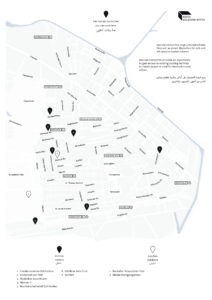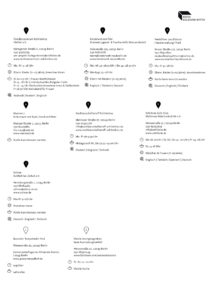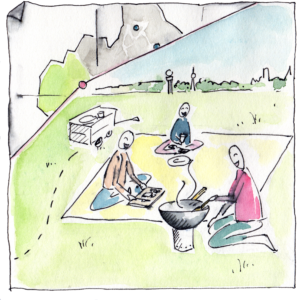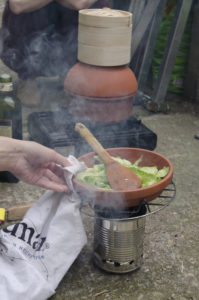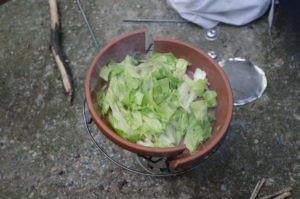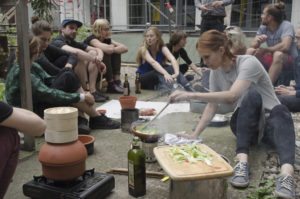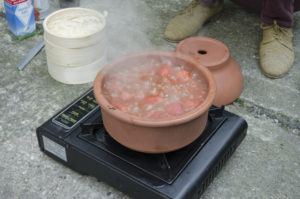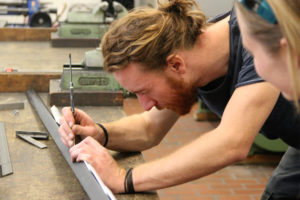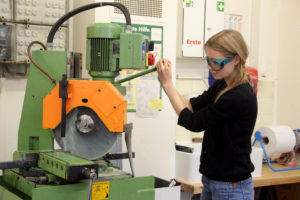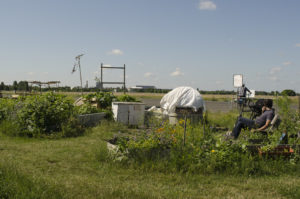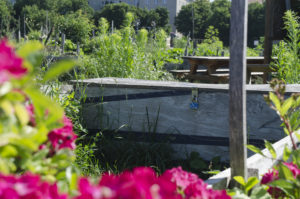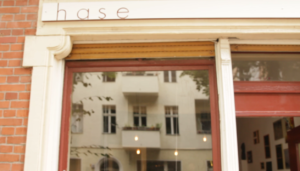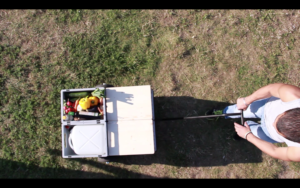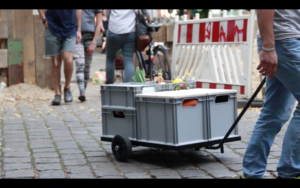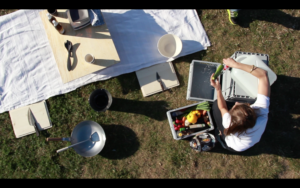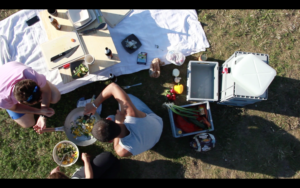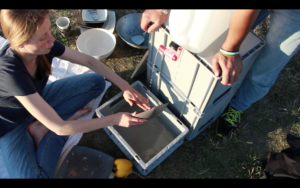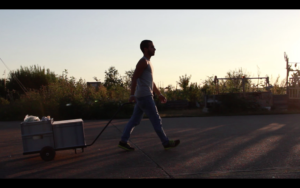
Author: Luisa Rubisch

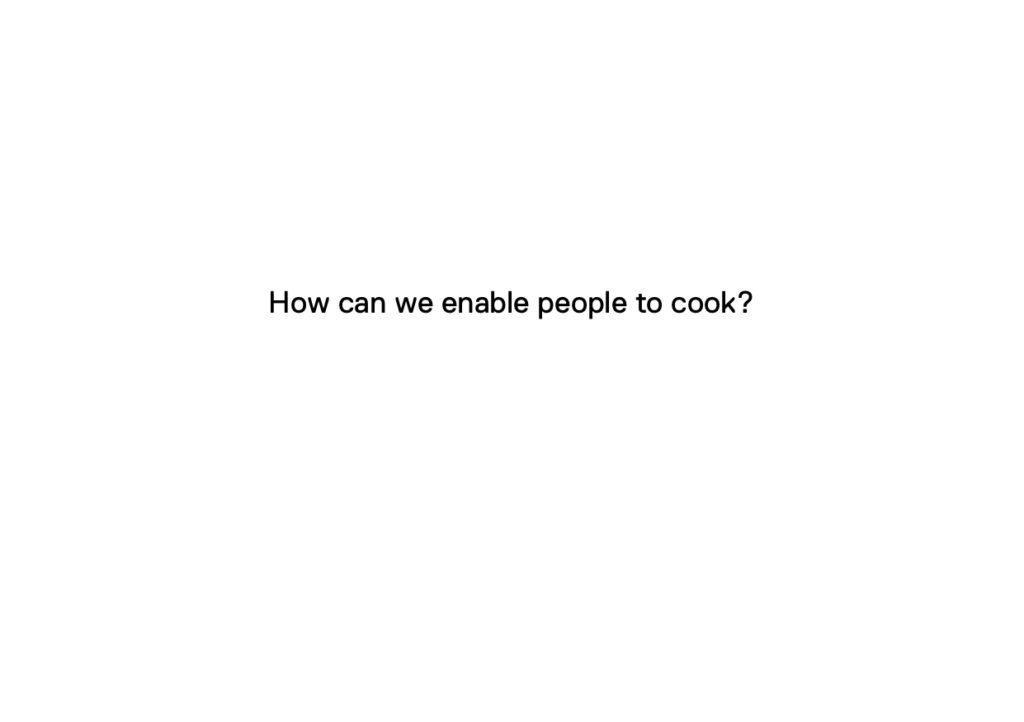
KochGelegenheiten — ideation
How can we enable people without any kitchen access to cook for themselves and others, because being able to do so plays a significant role in creating a space of comfort and wellbeing?
How could an integrated approach look like?
How can we encourage interactive food customs in Berlin’s social life, because a friendly vivid street life makes a city a pleasant and welcoming place to stay?
Thoughts, links and other stuff from our ideation phase:
Cooking instead of having a barbecue. Where else than at home can one cook in a city like Berlin? What is the legal frame? How to stretch it? A map of all the barbecue areas in Berlin:
Pinterest wall, we started on the topic of mobile kitchens:
https://de.pinterest.com/luisarubisch/mobile-kitchen/
A mobile kitchen is clearly not a long-term solution. It cannot replace a kitchen at home, but could be a beginning plus an integrative approach. Allowing for new culinary experiences elsewhere than at home could make it interesting for a lot of different people — also those ones having a proper kitchen at home. It could also help encouraging Berlin’s street life. Maybe making it part of a network of places willing to open up their kitchens to other people could make it even more relevant.

KochGelegenheiten — prototyping
While developing the cooking sites, we had several things in mind. To name a few: First we wanted the sites to be small and functional to guarantee mobility. As many people as possible should be able to use them, regardless of their age, income, cultural background or whatsoever. The included cooking stove should be smoke-free to allow for a harmless usage. In order to achieve those self-set goals, we e.g. went through many YouTube tutorials on self-build stoves, we spent a lot of time in the metal workshop redesigning the stove over and over again and also building the carriage, we had fun testing the various prototypes (e.g. stoves, hot pots) of which some worked out better than others, had a look at different locations that could serve as a base for renting out the sites and last but not least talked to a lot of local initiatives in order to ask them if they would be willing to let other people use their kitchens.

KochGelegenheiten — concept
KochGelegenheiten both provides an opportunity to gain access to existing cooking facilities and allows for new culinary experiences. So far it consists of several mobile cooking sites and a multilingual map, which presents these sites, along with existing communal kitchens and cooking facilities in the Berlin district of Neukölln, as part of a novel integrated network.
The idea is based on the observation that many people in Berlin have no access or limited access to cooking facilities. This is for example the case for refugees living in shelters, where food is often provided either by catering services or in canteens. Such services rarely manage to accommodate all the diverse eating traditions of the multicultural residents. Making and sharing food is an essential part of every culture and plays a significant role in creating a space of comfort and wellbeing.
KochGelegenheiten is an experiment to enable people to cook for themselves and others. It encourages interactive food culture in Berlin’s social life.
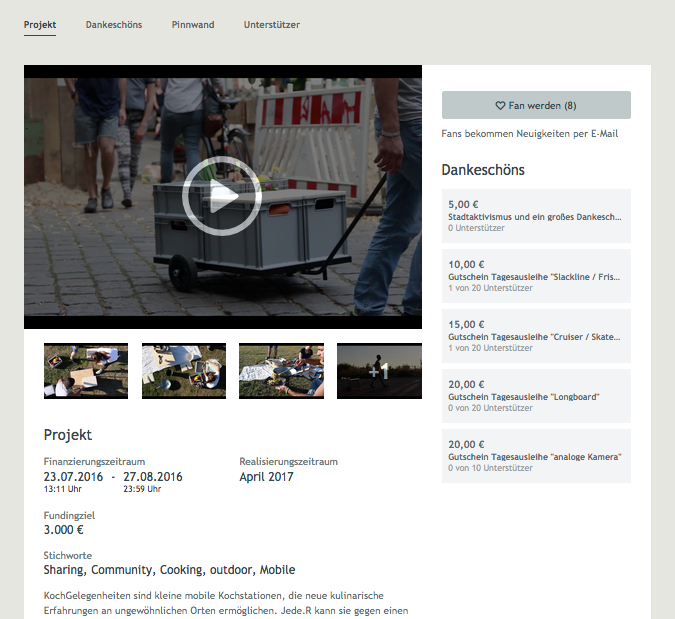
KochGelgenheiten — StartNext Campaign
After having been promised local funding for realising the map (see results) we decided to use the StartNext Campaign for financing the mobile cooking sites.
Due to their small size and mobility they allow for new culinary experiences in extraordinary spaces. Everyone is free to use them against a contribution to expenses. The project is about the freedom of choosing ones own cooking spot. It therefore is about reclaiming a city’s space and last but not least about joint experiences. It encourages interactive food culture in Berlin’s street and social life.
The several sites vary in type of the included hot pots. Each comes from a different culture: e.g. tajine, steamer, wok. The cooking modules each consist of several Euroboxes which are stored together on a purpose-made carriage. Every site includes a self-build cooking stove.

KochGelegenheiten — research
The sharing of food has always been part of the human history. Eating as a common experience brings people together. The topic of food is therefore predestined to foster open care. Trying to find out more about this power of food culture in the context of open care, we went into the field primarily asking ourselves:
“How can food culture contribute to make people on the move feel at home wherever they are at that very moment?”
Amongst others we ended up talking to a 24 year-old guy from Syria and a girl from Korea about the same age. One of them had to flee home and the other moved for love.
We learned that missing the food one grew up with is a good motivation to become active: Both are regularly preparing the dishes they know from back home. It still belongs to their most favourite food and eating it makes them feel well and comfortable.
Than there is this whole topic of interactive food customs and traditions in public spaces. We heard about Syrian nights when the streets are being turned into living rooms. People drink tea, smoke, chat and even sleep outside. In Korea the young people often enjoy street food together when meeting up and in Morocco for example people gather in parks in the evenings and bring their tagine out to cook and mingle.
In the context of food and wellbeing we also found out, that eating out, when being new to a country, easily triggers uncomfortableness due to not being able to see the food preparation. Even though it was hard to tell whether this is because of hygienic concerns or dietary laws, it became clear that being able to cook for oneself and others definitely is a desire. A need which stays often unfulfilled in refugee camps, where food is often provided either by catering services or in canteens.
For more details on our research see the articles we posted on Edgeryders:
https://edgeryders.eu/en/what-are-the-expectations-about-the-use-of-public-spaces-when-it-comes
https://edgeryders.eu/en/a-taste-of-home-or-the-use-of-public-spaces
https://edgeryders.eu/en/food-security-includes-the-opportunity-to-cook
https://edgeryders.eu/en/experimental-cooking-with-a-minimum-of-utensils
